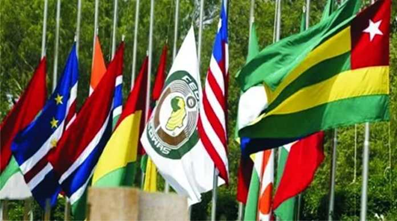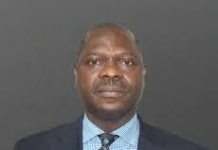By: Kebba AF Touray
The Parliament of the Economic Community of West African States (ECOWAS) is expected to discuss regional cohesion and security in their upcoming First Ordinary Session in 2024 having ended the Second Session of 2023.
The ECOWAS Parliament, also known as the Community Parliament, the Assembly of Peoples of the Community, serves as a forum for dialogue, consultation and consensus for representatives of the people of West Africa with the aim of promoting integration.
It was established under Articles 6 and 13 of the EOWAS Revised Treaty of 1993.
Among some of its objectives are to strengthen representative democracy in the Community, and to contribute to the promotion of peace, security, and stability on the West African Region, inform and sensitise the population on issues of integration.
Its objectives also include promoting and defending principles of human rights, democracy, the rule of law, transparency, accountability and good governance.
Some of the dominant issues of the 2023 second Ordinary Session of the Fifth Legislature were migration, the challenges of gender equality, and the impact of industrial development on the environment.
Other strategies for mobilizing domestic revenue in the States and the entrenchment of democracy in the ECOWAS region in the face of the resurgence of coups d’état were discussed.
Security, boosting social and economic integration, environment, consolidating and harnessing the region’s vast natural resources for the good of the peoples of West Africa also took the center stage.
The session also witnessed the presentation of reports by the Administration and Finance Committee (AFC), and presentation of the State of the Community Report, as well as the consideration of the Community Budget 2024.
Referrals, the mechanisms for combating the illegal exploitation of trade in wildlife, and the regional electricity market also featured prominently.
The parliament will reconvene at a time when the Community is in dire need of its services and actions, with ECOWAS faced with looming dangers including disintegration as some member countries feel unsatisfied with the bloc.
The trio Mali, Burkina Faso and Niger Republic under military rule, has already set the tone by declaring their withdrawal from the sub-regional body.
They have already formed what they call Alliance of Sahel States (AES), saying that ECOWAS has come “under the influence of foreign powers, betraying its founding principles” and was a “threat to member states and peoples.
“After 49 years of existence, the people of Burkina, Mali and Niger note with great regret, bitterness and great disappointment that their organization has moved away from the ideals of its founding fathers and from Pan-Africanism.
Their decision, which will certainly ruffle some diplomatic feathers in the sub-region, is in reaction to a set of stiff sanctions imposed on them by ECOWAS for truncating democratic rule.
Civil society organizations are already sensing danger and want different arms of ECOWAS, including the reconvening parliament to take deliberate actions to stop the body from extinction.
“At a time when the region is advancing discussions of a single market to further boost trade and development, it is completely disheartening to see leaders shun the channel of diplomacy and dialogue and instead attempt to disintegrate the community.
“The leaders of ECOWAS, in the interest of sustaining a peaceful, united, and prosperous economic bloc, must continue to operate under the principles of mutual respect,” said the Executive Director, CISLAC, Auwal Rafsanjani.
“The principle made the region a template for best practice in fostering regional integration in Africa,” Auwal Rafsanjani added.
Rafsanjani spoke on behalf of a coalition of civil society organizations named the Civil Society Legislative Advocacy Centre (CISLAC), Transparency International (TI), and West African Civil Society Forum (WACSOF).
The trio is serving a suspension order imposed by ECOWAS following military coups that brought their incumbent leaders to power.
Nigeria, a power house in ECOWAS, has reacted to the action of the three countries, affirming its commitment to the position of the bloc’s leadership in the situation.
In a statement signed by the spokesperson of the Nigerian Ministry of Foreign Affairs, Francisca Omayuli, Nigeria recalled that ECOWAS has worked to promote peace, prosperity and democracy in the region.
“Nigeria stands with ECOWAS to emphasise due process and shared commitment to protect and strengthen the rights and welfare of all citizens of Member States,” she said.
In the early days of the coups, ECOWAS parliament urged for dialogue even as it threw its weight behind the sanctions imposed by the ECOWAS Heads of State and Government.
“We, as a parliament, support all the decisions of the authority of heads of state in both of their summits,” he said.
“Parliament is supposed to be a forum for dialogue, we debate and if you are all on one side, then… naturally as representatives of the people, we have to debate issues; we debate military intervention, we debate diplomatic options, we debate sanctions,” Speaker of the ECOWAS Parliament, Sidie Tunis, was quoted as saying.
At the First Ordinary Session of the parliament in 2023, then Senate President, Ahmed Lawan enumerated areas ECOWAS parliament should consider as priorities including counter terrorism, and promoting cultural exchanges.
“The objectives of the ECOWAS parliament envisage a multi leveled approach to development, which is why we consider matters of politics, economics, culture and social cohesion in our deliberations.
“The areas of irregular migration, the fight against diseases, drought, and the quest to entrench accountability in our governance systems, are also integral. I am confident we are prepared to make our inputs for lasting solutions to the challenges.
“Matters of insecurity and conflicts require continuous attention, just as the liberty to move between member nations is helpful to economic growth, apart from growing attendant benefits like job creation, the stimulation of economic multipliers and our collective better well-being.
“We cannot realise this with insecurity and ethno-religious scuffles,” Lawan said.
As the parliament reconvenes, these issues raised by Lawan remain germane as it is expedient that parliamentarians tackle them rigorously and with the level of urgency they deserve.



















